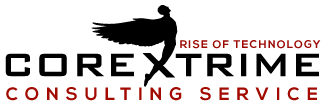MySQL Training in Ahmedabad
SQL Training in Ahmedabad
Only 3% of graduates with technical degrees possess adequate skills for work, and only 7% of them can undertake core technical jobs,” according to an India Today survey. So, which side of the wall do you want to be on? The 97 percent of college graduates who are unskilled, or the 3% of talented professionals who are ready to alter the world.
We hopes to change these statistics by coaching students, academics, and experts on how to solve difficult industrial challenges.
Advantages of SQL
- Adaptable and Scalable.
- Provides dependable transactional assistance.
- Provides a high level of protection while being simple to manage.
- Databases such as MS Access, Microsoft SQL Server, MySQL, Oracle Database, SAP HANA, SAP Adaptive Server, and others are highly compatible.
- Language for open source programming.
Sql course covering Basic to Advanced levels from Corextrime
1. Introduction to SQL
* What is SQL?
* History and Importance
* SQL vs NoSQL
* RDBMS Concepts (Tables, Rows, Columns, Keys)
* Popular RDBMS Software (MySQL, PostgreSQL, SQL Server, Oracle)
2. Basic SQL
* Database & Table Creation
* CREATE DATABASE
* CREATE TABLE
* Data Types
* Basic Data Manipulation
* INSERT INTO
* SELECT
* UPDATE
* DELETE
* Basic Filtering
* WHERE clause
* Logical Operators (AND, OR, NOT)
* Sorting and Limiting
* ORDER BY
* LIMIT
3. Intermediate SQL
* Constraints
* PRIMARY KEY, FOREIGN KEY
* UNIQUE, NOT NULL, CHECK, DEFAULT
* SQL Functions
* String Functions (UPPER, LOWER, SUBSTRING, etc.)
* Numeric Functions (ROUND, CEIL, FLOOR, etc.)
* Date Functions (NOW(), DATEDIFF(), etc.)
* Joins
* INNER JOIN
* LEFT JOIN
* RIGHT JOIN
* FULL OUTER JOIN
* SELF JOIN
* Aggregations
* COUNT, SUM, AVG, MIN, MAX
* GROUP BY, HAVING
4. Advanced SQL
* Subqueries
* Scalar, Correlated, and Nested Subqueries
* Views
* CREATE VIEW, UPDATE VIEW, DROP VIEW
* Indexing
* Creating and Using Indexes
* Transactions and ACID Properties
* BEGIN, COMMIT, ROLLBACK
* Stored Procedures and Functions
* CREATE PROCEDURE, CREATE FUNCTION
* Triggers
* AFTER, BEFORE triggers
* Cursors
* Common Table Expressions (CTE)
* WITH clause
* Window Functions
* ROW_NUMBER(), RANK(), DENSE_RANK(), LEAD(), LAG()
* Error Handling
* TRY, CATCH, error messages
5. Performance Tuning & Optimization
* Query Optimization Techniques
* Execution Plans
* Index Optimization
* Normalization and Denormalization
* Partitioning
6. SQL for Data Analysis
* Data Cleaning with SQL
7. SQL in Practice
* Real-World Use Cases
* Working with Large Datasets
* Case Studies and Projects
Get Expert Consultation
Some facts about SQL
- SQL is a database query language that also acts as a programming language because to its manipulating capabilities.
- SQL may establish new databases from existing data, specify data permissions, and suggest stored procedures.
- SQL is also used for database standardisation and normalisation.
- SQL has been an open-source language since its creation, many organisations have created their own SQL versions.
- Although all versions of SQL have the same functionality and syntax, some parts have been altered for different versions.
- In order to fully utilise SQL’s capability in your day-to-day programming, you must be familiar with all of its major versions.
- To check the data and do analysis, the data team employs SQL.
- If you want to work in data management and implementation nowadays, you’ll need to understand SQL.
Updating soon
